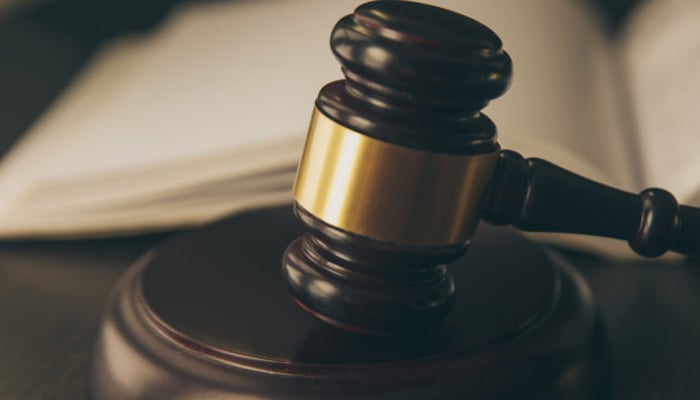Musharraf treason case: PBC moves apex court against LHC's decision
The LHC on January 13 declared formation of special court as 'unconstitutional'
ISLAMABAD: The Pakistan Bar Council (PBC) challenged the Lahore High Court's (LHC) decision in the Supreme Court of Pakistan on Wednesday. The LHC had declared the constitution of a special court to try General (retd) Musharraf for high treason unconstitutional.
The high court bypassed constitutional limits in the case, the petition submitted in the Supreme Court said.
The ruling of January 13 should be nullified, stated the petition, requesting the apex court to declare the LHC's decision unconstitutional.
The petition asked that Musharraf, the president of Pakistan, secretary of law and justice, the Federal Investigation Agency (FIA), and the special court be made a party to the petition.
The PBC has filed the case on behalf of its vice-chairperson Abid Saqi.
The LHC, on January 13, had termed 'unconstitutional' the formation of a special court to try the former military dictator.
It ruled that the amended Article 6 of the Constitution, under which Musharraf had been found guilty, could not be applied in the case 'ex post facto' (retrospectively).
Article 6 of the Constitution was modified through the 18th Amendment in 2010, while the case against Musharraf concerned events that happened before that.
The decision came in response to a petition filed by Musharraf challenging the formation of the special court for the high treason case against him.
The former president had challenged not only the conviction but also the formation of the special court that handed him the death penalty for high treason, as well as the complaint filed against him by the government of former prime minister Nawaz Sharif that resulted Musharraf being tried for the offence.
Death sentenced handed
On December 17, 2019 the special court sentenced him to death for imposing a state of emergency on November 3, 2007.
The court, in its short order said it had analysed complaints, records, arguments and facts in the case for three months. The court added it had found Musharraf guilty of high treason according to Article 6 of the Constitution of Pakistan for imposing a state of emergency on November 03, 2007.
It was a majority verdict, with two of the three judges giving the decision against Musharraf. SHC's Justice Akbar had dissented from the verdict.
High treason case
The PML-N government had filed the treason case against Musharraf over the former dictator's imposition of an extra-constitutional emergency in November 2007.
The former army chief was indicted in the case in March 2014 after he appeared before the court. He had rejected all the charges.
On March 18, 2016, the former president had left Pakistan for Dubai for medical treatment after his name was removed from the Exit Control List on the orders of the Supreme Court.
A few months later, the special court had declared him a proclaimed offender and ordered the confiscation of his property owing to his continuous inability to appear.
Later, his passport and identity card were also cancelled on the orders of the apex court.
The head of the prosecution appointed by the PML-N, Mohammad Akram Sheikh, had last year tendered his resignation. In his resignation letter, sent to the interior secretary, Sheikh had expressed his inability to proceed with the case considering the change of government at the centre.
-
Security forces gun down 30 terrorists in multiple IBOs in KP: ISPR
-
MQM-P calls for new province in Sindh
-
US report validates Pakistan military edge over India: PM
-
Banned TTP poses serious threat to Pakistan security: UNSC panel
-
CM Afridi clarifies remarks on by-poll after ECP requests army deployment
-
Dubai sees 3.2m Pakistani passengers in 2025 as airport sets new milestone
-
Security forces kill 23 Indian proxy terrorists in KP's Kurram
-
Pakistan to construct island to boost oil exploration: report












